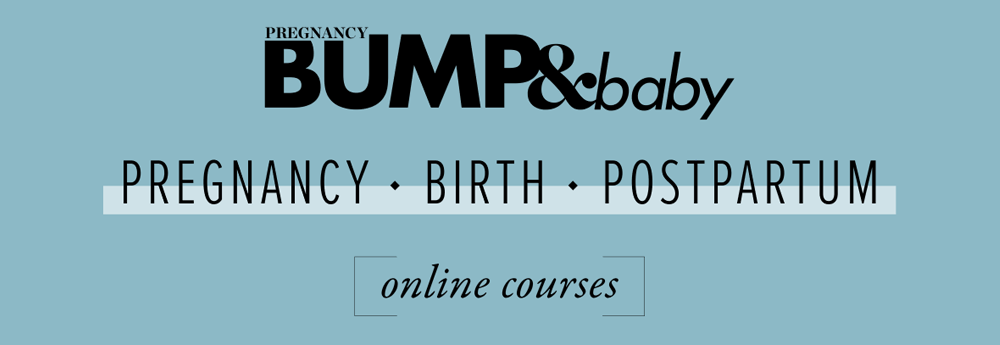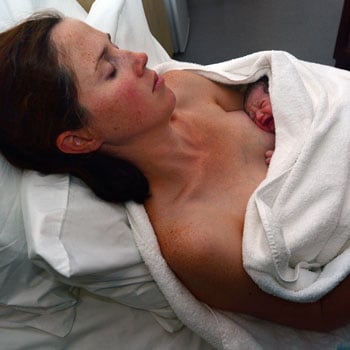
If you’re trying for a baby, what do you need to know beforehand? Dr Olivia Stuart, Fertility Specialist, Gynaecologist and Obstetrician at Fertility Associates Auckland, sheds some light.
Kiwi women are having their first baby later in life. We are being told to reach our career potential, be financially secure, and have a suitable partner before we start a family. This means that many women are hoping to become pregnant in their late 30s and early 40s, at a time when our fertility is already declining.
My advice to all women considering having a baby in their 30s and 40s is to understand your own biological clock. Fertility Associates has developed an online tool to help identify a woman’s chances of giving birth at any given age. It is also designed to help identify the right time to seek help if you are not getting pregnant.
When trying for a baby, there are some important changes you can make to your lifestyle to increase your chances of having a healthy baby.
For Women
Have a BMI of 20-25
A healthy body mass index (BMI) is associated with better fertility. Being overweight or underweight can reduce fertility, so it is important to keep your body weight within the normal healthy range. Body Mass Index (BMI) is an indication of your body weight and can be calculated by dividing weight (in kg) divided by your height (in metres squared). You should aim for a BMI of between 20 and 25, as this will optimise your chances of conception. Pregnancy in overweight women is associated with problems such as diabetes and high blood pressure. Eat a healthy diet and get regular exercise.
Don’t smoke or do drugs.
Smoking halves the chances of conceiving each month and doubles the chances of miscarriage. Nicotine patches and electronic cigarettes are not advised as they also contain some of the harmful chemicals in tobacco. Marijuana and other illicit drugs reduce your chances of pregnancy, increase your risk of miscarriage, and can be highly damaging to the unborn child. Discuss all your medications with your doctor.
Take appropriate supplements.
Folic acid reduces the risk of neural tube defects such as spina bifida by over 90% when 0.8mg is taken daily, starting one month pre-conceptually and until 12 weeks gestational age. Particular groups of women require the higher 5mg daily dose of folate such as diabetics, those on anti-convulsants or a previous history of a baby with a neural tube defect. A pregnancy multi-vitamin may be needed if you feel your diet has de ciencies. Vitamin A is a known teratogen causing foetal abnormalities and should not be taken in women trying to conceive or during pregnancy.
Reduce alcohol and caffeine
Caffeine may reduce your chances of conceiving. There is no safe limit of alcohol during pregnancy. Small amounts of alcohol are probably not detrimental but excessive alcohol can reduce your chances of pregnancy by up to 60% and drinking during pregnancy can cause foetal abnormalities. I recommend not drinking while trying to conceive or during pregnancy.
Update your immunisations.
Make sure you have had a rubella immunisation. Rubella can damage unborn babies. Also, find out if you have had chicken pox. If not, consider immunisation.
Try acupuncture
Acupuncture can be very helpful as a stress-relief technique and can be bene cial to those trying for a baby.
When should I seek help?
One in four people experience infertility in New Zealand, so seeking help early is the best thing you can do. The average 36-year-old takes at least six months to conceive. So we recommend that women over 36 should wait no more than six months before seeking help. But if you are concerned at any age, don’t delay. Having a conversation with a specialist is the very best thing you can do to understand your options.

For men
Don’t smoke or do drugs
Smoking and recreational drugs can reduce sperm quality.
Reduce alcohol intake
Decrease your alcohol intake to 20 units or less a week. Alcohol has also been shown to affect fertility.
Have a normal BMI
Keep active and stay slim. Obese men have sperm counts 22% lower, on average, when compared to their slimmer counterparts. Keep your body mass index (BMI) below 28.
Keep testes cool
Wear boxer shorts, not briefs, as this helps the testes to keep cool. Men in sedentary jobs can have poorer quality sperm because their testes are more prone to heating up. Keep your laptop off your lap! And don’t have a hot bath, sauna, or spa too frequently.
Things to consider before starting fertility treatment
You are important
Knowing that you are going to have doctors and nurses available to you that can be called on throughout your treatment is vital. So look for a team that you feel comfortable with
Consider starting immediately
Nature waits for no one, and this is particularly true when trying for a baby. If you are thinking of having a baby, consider taking up fertility screening immediately
“Know how” is key
Each fertility case is unique; however, you want a clinic that can draw on local case studies and success rates. Their success is your success.
Use trusted fertility specialists
IVF treatment is a very complex procedure where every step must be precisely performed. Look for a clinic that has a quali ed team of fertility specialists. Each clinic is unique – trusting that your chosen clinic is established and has a history of delivering local successful results is important to your own experience. • Understand the costs and investigate the payment options. Some clinics provide an option where you pay upfront for three cycles and if you are not successful after three attempts, they refund a signi cant portion of the cost. Check out fertilitycover.co.nz.
Go for the best chance
When looking at costs, it is also important to go with the clinic that will give you the best chance of success, as repeat cycles will only add to the cost.
Technology matters
In order to obtain the best possible results, IVF treatments require the latest technology. You should check that the clinic has access to the most adequate equipment and the latest proven techniques for your treatment.
Support is key
You may not be telling many people, but having a core group of friends or family you can talk to when you need to is ideal. Counselling is often offered with fertility treatment, so read the ne print. Support may be included.
Understanding age
Age is the most important factor when trying for a baby. A woman is most fertile in her 20s, when it can take about three to four months to conceive. As per the graph at left, you can see from 35 years onwards, there is a decline in the chance of conception per month.
- Age is important for women with normal fertility, and also for people needing fertility treatment.

BUMP&baby
BUMP & baby is New Zealand’s only magazine for pregnancy and early babyhood. Our team of mums and mums-to-be understand what it’s like to be pregnant in this connected age, and that’s why BUMP & Baby online is geared toward what pregnant women and new mums really want to know.
Other articles of interest
Giving birth naturally — your way
With all of the birth techniques available, how do you know which one is right for you?
Beyond the baby blues
It’s normal to feel a bit down following childbirth. But what if your feelings don’t improve, or you aren’t coping? You may have postnatal depression, also known as PND







